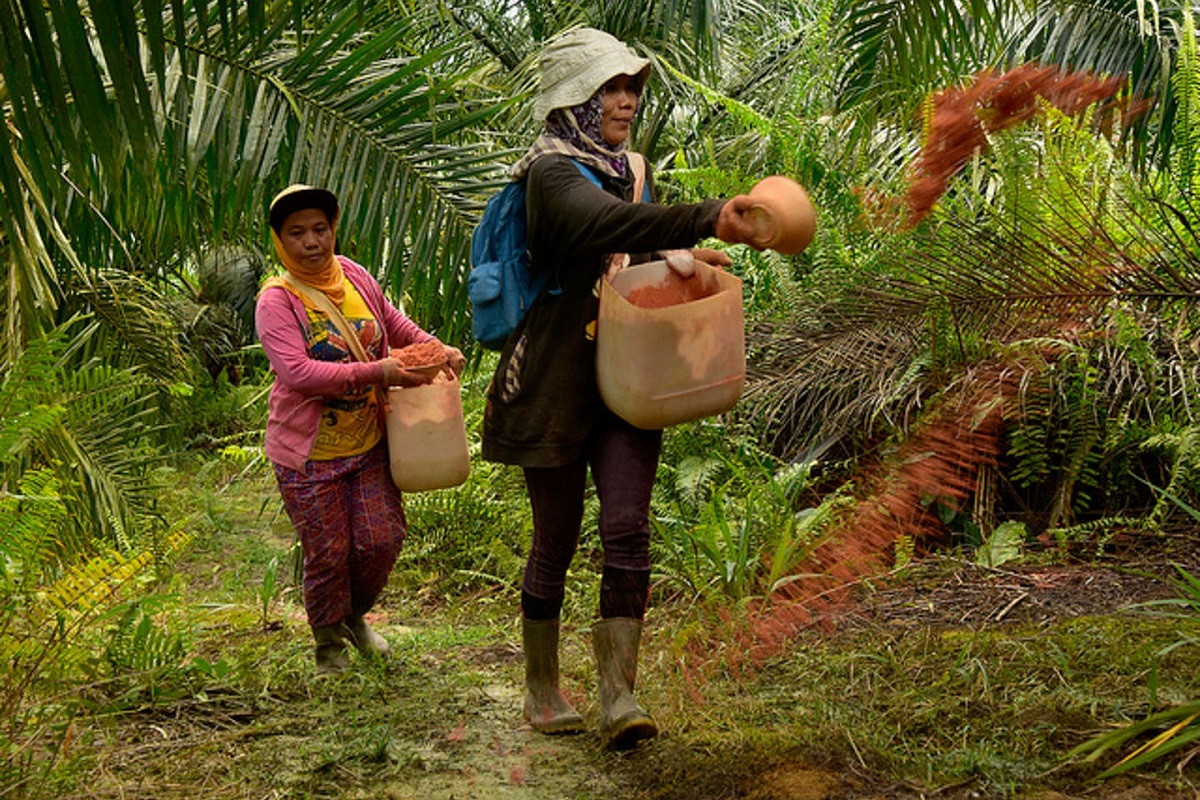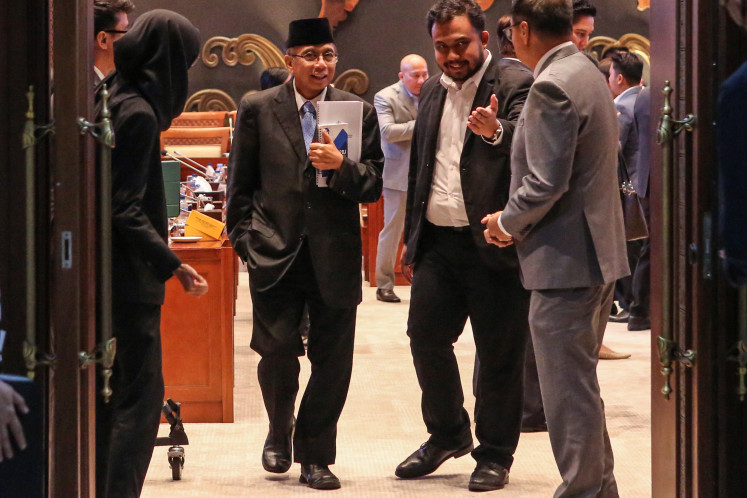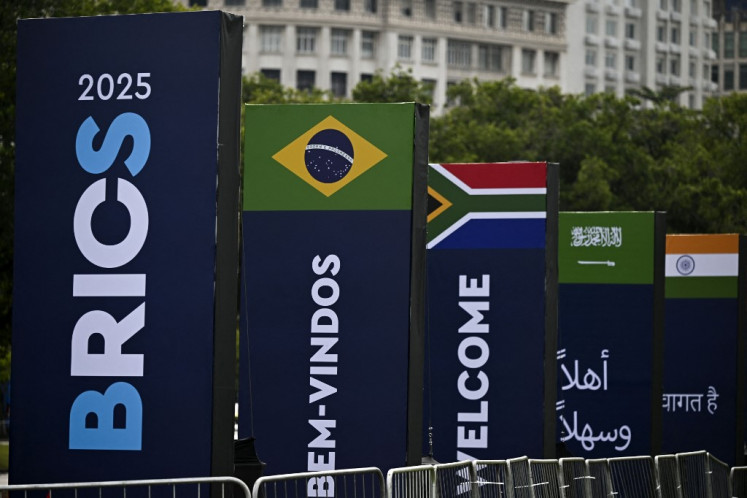Popular Reads
Top Results
Can't find what you're looking for?
View all search resultsPopular Reads
Top Results
Can't find what you're looking for?
View all search resultsPalm oil beauty products: Get pampered or get raped!
The invisibility of the women in the palm oil plantations is not unique among victims of violence against women and girls.
Change text size
Gift Premium Articles
to Anyone
What is your favorite beauty product? Your anti-aging cream, shampoo or lipstick?
What woman does not like to feel pampered and beautiful by using beauty products that are geared to making her feel that way? Companies try to persuade women to buy their beauty products through advertising, marketing, packaging, the use of appealing colors, scents, etc.
But what if you were to find out that behind the beauty products that make you feel good, poor women are being violated and raped? How so? Because the beauty products contain palm oil.
Recently I came across a well-researched article written by Margie Mason and Robin McDowell with the title “Rape, abuses in palm oil fields linked to top beauty brands” (Associated Press, Nov. 19, 2020). It recounts the experiences of a number of women in a palm oil plantation in Sumatra.
“With his hand clamped tightly over her mouth, she could not scream, the 16-year-old girl recalls – and no one was around to hear her anyway. She describes how her boss raped her amid the tall trees on an Indonesian palm oil plantation that feeds into some of the world’s best-known cosmetic brands. He then put an ax to her throat and warned her: Do not tell.”
This was the harrowing opening of the article. There is more. On another plantation, twice Ita loses babies in her third trimester as a result of lugging heavy loads several times her weight. She continues to work as she fears she will be fired if she does not obey orders.
For Ola, the problem comes from pesticides. After years of spraying without protective clothing, she suffers fevers, nose bleeds and coughing. Only earning US$2 per day, she cannot afford to see a doctor.
The authors point out that these are just three of the invisible women of the palm oil industry. “among the millions of daughters, mothers and grandmothers who toil on vast plantations across Indonesia and neighboring Malaysia, which together produce 85 percent of the world’s most versatile vegetable oil”.
The authors also mention that among the multinational companies that make up part of the $530 billion beauty business are L’Oréal, Unilever, Procter & Gamble, Avon and Johnson & Johnson, which are commonly found in most households, even low-income ones. Not beauty products but toiletries such as soap, shampoo, toothpaste and detergent.
As we all know, palm oil is used in a very wide range of products that we use daily. However, juxtaposing the women using the beauty products, with the abused women in the plantations, made the AP article very poignant.
Sure, as consumers, we can be more aware and exercise our right to purchase products that do not contain palm oil, or only use certified sustainable palm oil which are said to be produced in a “socially and environmentally responsible way”. Does this include no rape or any other form of violence against women?
The significance of the AP article is that it points out the intersectionality of what Chris Hedges, the Pulitzer Prize-winning journalist calls “the primacy of profit”, with the corporate state (i.e. the condition whereby powerful corporations dominate the world economy and encroach on the state, democracy, politics, human rights and the environment), environmental degradation and violence against women in all its forms.
Today, Nov. 25, is International Day for the Elimination of Violence Against Women, which marks the beginning of the international 16 Days of Activism Against Gender Based Violence. It ends on Dec. 10, which is International Human Rights Day. It was initiated by the First Women’s Global Institute in 1991, and held at Rutgers University, New Jersey in the United States. Today, 6,000 organizations from 187 countries participate yearly in this campaign, including Indonesia.
The invisibility of the women in the palm oil plantations is not unique among victims of violence against women and girls (VAWG). In terms of human rights abuses, it is one of “the most devastating, widespread, persistent human rights violations in the world. It remains largely unreported due to the impunity, silence, stigma and shame surrounding it.”
Eliminating VAWG is so intractable whether in plantations, factories, the workplace or within families because it is deeply entrenched in the systems that govern our lives: economic, political and ideological, which are all still stubbornly patriarchal. The COVID-19 pandemic has only exacerbated the problem due to the stress and economic hardship that many experience.
Yesterday, LBH APIK, a leading network of 16 legal aid organizations issued a press release on the 16 Days of Activism with the title “Move Together to Create a Safe Space During the Pandemic” as there has been a notable increase in numbers of reports of gender-based violence during the pandemic.
The press release also contained nine points addressed to the government and the House of Representatives, which obviously pointed to the need for more gender-conscious policies related to the pandemic; a rejection of the family resilience bill, which puts even more of a burden on women; a revision of the 2008 Electronic Information and Transactions Law; the implementation of an integrated criminal justice system for handling cases of violence against women and children, and of course, the immediate deliberation and passing of the eradication of sexual violence, and the protection of domestic workers bills.
Obviously, we women know what needs to be done. Bapak-bapak, if you have any balls, the ball is in your court!
***
The writer is the author of Sex, Power and Nation.










